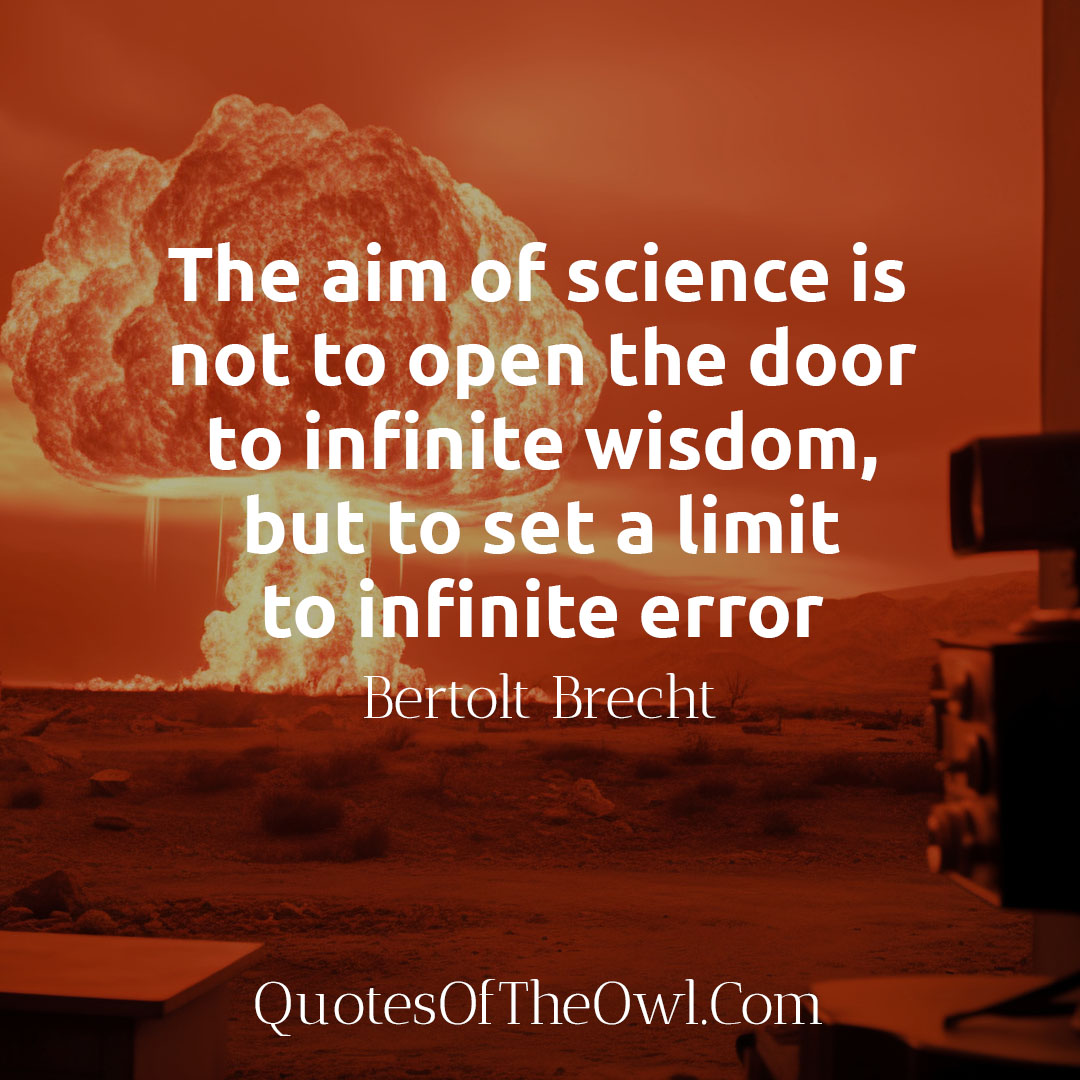The aim of science is not to open the door to infinite wisdom, but to set a limit to infinite error – Bertolt Brecht
Bertolt Brecht, the renowned German playwright, poet, and philosopher, left behind a rich legacy of thought-provoking insights. Among his profound musings, one particular quote stands out: “The aim of science is not to open the door to infinite wisdom, but to set a limit to infinite error.” In this article, we delve into the meaning and implications of this quote, exploring its relevance in today’s world and its significance in understanding the nature of scientific inquiry.
In the quest for knowledge and understanding, science serves as a guiding light, illuminating the path forward. However, Brecht’s quote challenges us to reconsider the ultimate purpose of scientific endeavors.
Understanding Bertolt Brecht
Before delving into the quote’s meaning, it’s essential to understand the context in which Bertolt Brecht lived and worked. As a playwright and thinker deeply engaged with socio-political issues, Brecht’s perspectives were often shaped by the tumultuous times he lived in.
Interpretation of the Quote
Science as a Limit to Error
At its core, Brecht’s quote suggests that the primary objective of science is not to attain absolute wisdom or truth but rather to mitigate the potential for error. In other words, science acts as a safeguard against the proliferation of misconceptions and falsehoods.
The Pursuit of Truth
While science may not lead us to infinite wisdom, it remains a powerful tool for uncovering truths about the natural world. By systematically testing hypotheses and refining theories, scientists inch closer to a more accurate understanding of reality.
Contextualizing Science and Wisdom
Limiting Error vs. Attaining Wisdom
Unlike the pursuit of wisdom, which implies a journey towards enlightenment without bounds, science operates within the confines of empirical evidence and logical reasoning. By acknowledging its limitations, science can better fulfill its role in advancing knowledge.
The Role of Science in Modern Society
In today’s increasingly complex world, science plays a pivotal role in shaping public policy, technological advancements, and societal progress. However, Brecht’s quote reminds us that scientific knowledge is always provisional and subject to revision.
The Importance of Skepticism
Central to Brecht’s philosophy is the importance of skepticism—an attitude of questioning and critical inquiry. By fostering a culture of skepticism, we guard against dogma and ideology, allowing for the free exchange of ideas and the advancement of knowledge.
Implications for Society
Critical Thinking and Decision Making
In a world inundated with information, Brecht’s quote serves as a reminder of the importance of critical thinking. By applying scientific principles to everyday decision-making, individuals can navigate ambiguity and make informed choices.
Ethical Considerations
Moreover, the ethical implications of scientific research cannot be overlooked. Brecht’s quote urges scientists to consider the broader societal implications of their work, ensuring that advancements are guided by principles of justice and human welfare.
Challenges and Criticisms
While Brecht’s quote offers valuable insights, it is not without its criticisms. Some may argue that science should strive for more than just error reduction, aiming instead for transformative discoveries that expand the boundaries of human knowledge.

